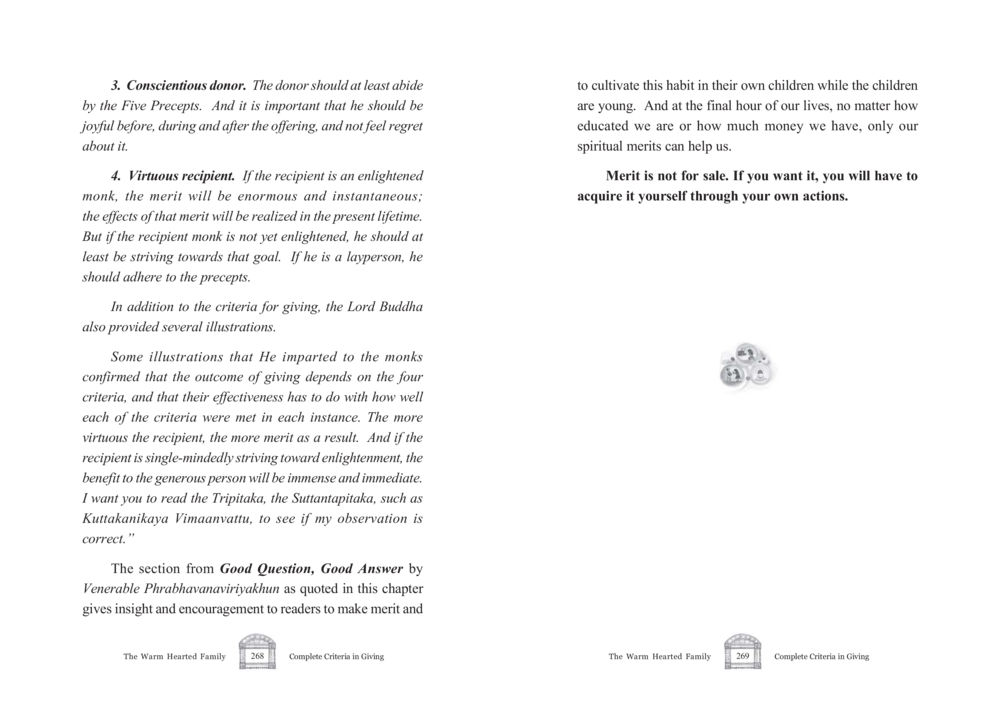Understanding the Importance of Merit in Giving : หน้า 135/207
The Warm Hearted Family : หน้า 135/207 Explore the principles behind merit-making and the qualities of both donors and recipients in Buddhism.
0 ครั้ง

สรุปเนื้อหา
This text discusses the essential qualities of a conscientious donor and a virtuous recipient within the context of Buddhism, emphasizing the importance of joy in giving and adherence to the Five Precepts. It highlights that the merit gained depends on the recipient's virtue, and while enlightened monks yield immediate benefits, the focus on striving for enlightenment is equally crucial. The teachings encourage fostering the habit of merit-making in children and underline that true merit cannot be acquired through wealth but only through selfless actions. For deeper understanding, references to the Tripitaka and its texts are suggested.
หัวข้อประเด็น
-Qualities of a Conscientious Donor
-Importance of Virtuous Recipients
-Effects of Merit in Buddhism
-Illustrations from Buddhist Teachings
-Cultivating Merit in Children
ข้อความต้นฉบับในหน้า
หน้าหนังสือทั้งหมด















































































































































































































